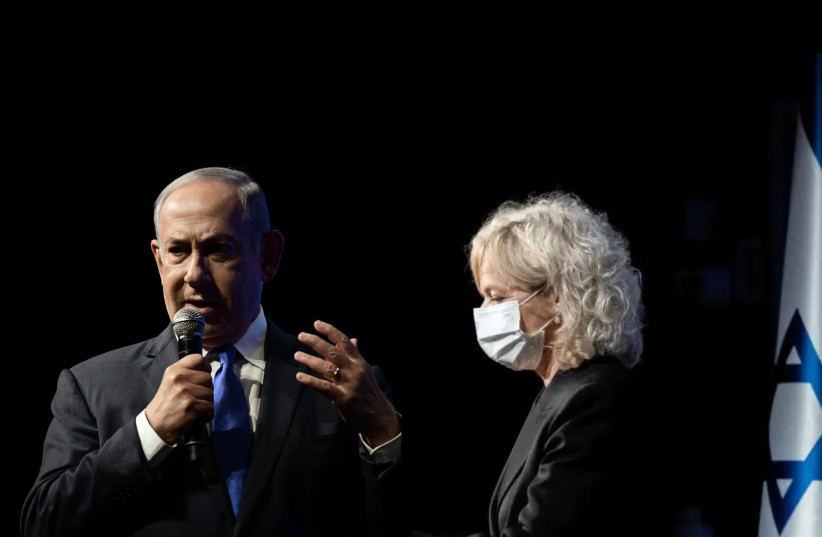Attorney-General Gali Baharav-Miara on Thursday issued an official opinion against the judicial reforms, just before President Isaac Herzog’s office confirmed that he was promoting a negotiation mechanism to avoid a “constitutional crisis.”
Baharav-Miara’s report said each of the provisions of the proposed judicial reforms would damage Israel’s system of checks and balances on its own and more so cumulatively, she said. There were no checks in the proposed system to ensure the protection of human rights and proper administration, she added.
“Acceptance of the proposed arrangement will lead to a regime structure in which the executive and legislative authorities have broad and practically unlimited authority, which has no built-in response to possible fear of misuse of legislation or Basic Laws for the purpose of circumventing judicial review, or of harming the core characteristics of the state as a Jewish and democratic state,” the Attorney-General’s Office said in a statement.
Knesset Constitution, Law and Justice Committee proponents of the reforms have compared their changes to existing laws and institutions in other democratic states. Baharav-Miara, however, said the changes were unusual when compared to those countries.
Among these other democratic states, she warned that the opinion of Israel as having a professional, independent and nonpolitical legal system would be changed.

What did Baharav-Miara propose as an alternative?
The proposed reforms, announced by Levin and presented to the Attorney-General’s Office three weeks ago, would introduce an override clause to strike High Court of Justice rulings with a simple Knesset majority, give politicians a majority on the Judicial Selection Committee, require unanimous agreement among High Court justices to use judicial review, cancel the reasonableness clause and require legal advisers to hold the opinion of the government.
The time frame of three days within which the Attorney-General’s Office was expected to respond to the drafts was unreasonable, the statement said.
Instead of the proposed reforms, Baharav-Miara suggested that Levin work together with relevant parties to pursue the formulation of the Basic Law: The Legislation. This Basic Law would establish the relationship and boundaries of the Knesset and the judiciary and is considered a missing piece of vital constitutional legislation.
Herzog announces an outline and calls for legislation freeze
Herzog’s office confirmed that he was offering his own outline for an alternative legal reform process on Thursday night.
The president’s negotiation outline would include a legislation freeze for 14 days and talks without preconditions with the aim of reaching a compromise, the N12 news site reported.
“The president has been working for many weeks in an attempt to prevent a historic constitutional crisis and to curb the deepening of the division in the nation,” the President’s Office said. “The President’s Residence is currently used as a dialogue center that has been succeeding in maintaining the trust of the parties as a safe place for discussions in the midst of the controversy while maintaining discretion.”
The meetings, which have involved research institutes and various organizations, sought a “negotiation mechanism that would allow an exit from the crisis while adhering to the fundamental values of the State of Israel as a Jewish and democratic state and while maintaining the unity of the people.”
The Justice Ministry has rejected a legislation freeze, N12 reported.
Im Tirzu has called the president’s proposal “out of the question.”
Anti-reform protest groups have also rejected Herzog’s negotiations.
The Crime Minister movement said Herzog was whitewashing Prime Minister Benjamin Netanyahu after the attorney-general had issued an order on Thursday that he not involve himself with the reforms over concern of a conflict of interest with his ongoing corruption trial.
The Student Protest said there “is no dialogue with those who are trying to destroy democracy and turn us into Hungary.”
Former prime minister Naftali Bennett welcomed Herzog’s initiative, saying it was needed to restore calm and bring about a sustainable reform. The alternative was civil war, he said.
